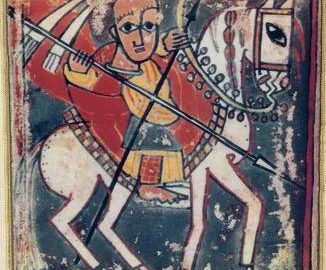Today, July 18, South Africa is celebrating Nelson Mandela’s 94th birthday. President Zuma praised him with the following words, from the moment Nelson Rolihlahla Mandela strode out of prison on the 11th of February 1990, we knew that South Africa would be a different place” (BBC News). This event coincides with the tour Paul Simon and his South African colleagues are making in Europe.
by Charlie Crooijmans
The original release in 1986 was strongly controversial, because Paul Simon had broken the cultural boycott. The Anti-Apartheid Movements requested artists not to present or let their works be hosted in South Africa. This kind of situation is still current in Israel as you can read in the previous article on News and Noise. There also a boycott is called for – and answered upon by many artists.
Hungry for new sounds singer-songwriter Paul Simon went to South Africa to learn from and play with black South African musicians ignoring the Anti-Apartheid Movements. Looking back, Simon was like the boy in a bubble, unaware of politics and apartheid. The result, however, was an unforeseen success and the mix of South-African and American folk tunes is timeless.
After he heard the tape Gumboots: Accordion Jive in 1984, Simon wanted to use that sound and decided to go to South Africa. His friend Harry Belafonte warned him to consult the ANC before leaving because of the difficult situation, which Simon simply did not do.
Whether he was right or wrong, Paul Simon felt he had to explain his intentions. In the documentary Under African Skies (2011, Joe Berlinger) he made an emotional journey back to South Africa. The film includes coverage of an anniversary reunion concert, archival footage, interviews, and a conversation between Paul Simon and Dali Tambo (son of the late ANC leader O.R. Timbo). At the end they come to a certain understanding. The movie shows us how important the collaboration was for the black artists even though they did not know who this little man from the USA was.
Paul Simon did not campaign against apartheid. He just needed some inspiration; his career was in a low at that time. Without knowing he achieved something better than secluding. The success of the album was a great benefit for the super star but moreover it opened doors for the artists with whom he collaborated, like the a Capella singers Ladysmith Black Mambazo. Miriam Makeba – the first artist in the 1960s who popularized African music in the U.S. and around the world – joined his world tour in 1987. Finally she could sing for South Aficans in Zimbabwe, for she was banned from her motherland. She taught Simon the official anthem of the ANC, Nkosi Sikelel’iAfrika.
http://www.youtube.com/watch?v=MFW7845XO3g
You can call me Al is the first single released from the album.

Yes, kinda funny how history re-writes itself. How Paul Simon defied an UN boycott – & decided to make this record, despite massive protests. Re-inventing him as a ‘serious’ recording artist (don’t forget he-was pretty much regarded as a ‘has been’ for many years), & cynically speaking, benefited financially from the ‘apartheid’ regime. And a quarter of a century on? Much has changed, but this record still stands up as a great, possibly ‘important’ record, & who’s to say it didn’t somehow help in the dismantling of apartheid?!
http://blogs.telegraph.co.uk/culture/lucyjones/100063781/should-paul-simon-have-defied-a-un-boycott-to-make-graceland-in-south-africa-under-apartheid/
Right on!
http://youtu.be/nAgd9Ijw6WI
(Great video – by Gracelands bass player Bakithi Kumalo)
Beautiful!! There was a great video on Youtube of Paul Simon and Ladysmith Black Mambazo live at an American TV show after the release of Graceland. But unfortunately it is not available anymore. They really kicked ass.